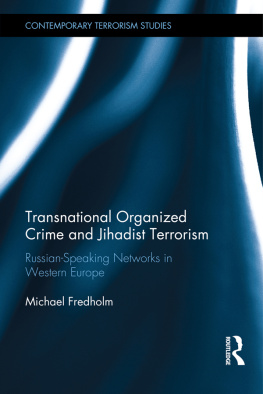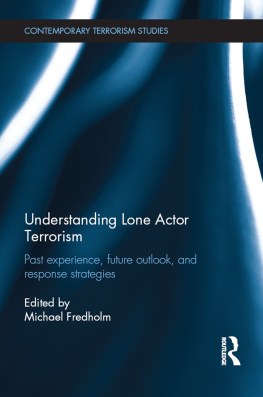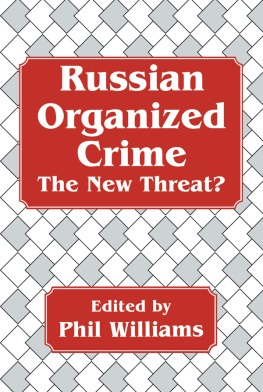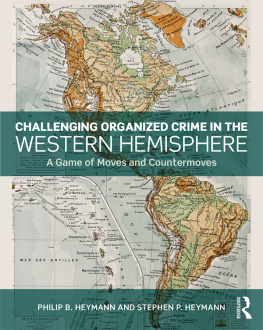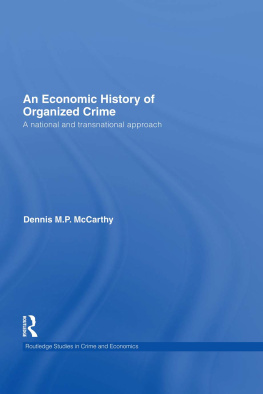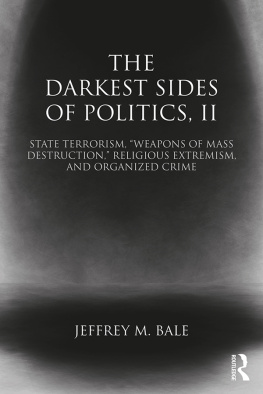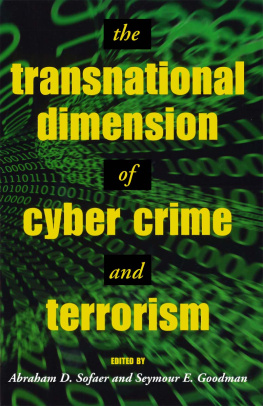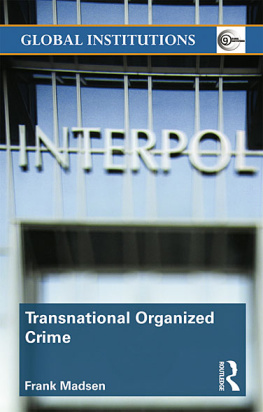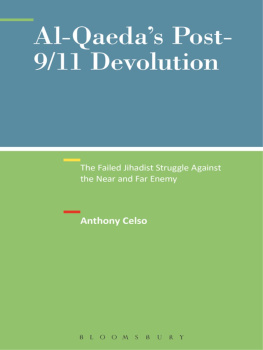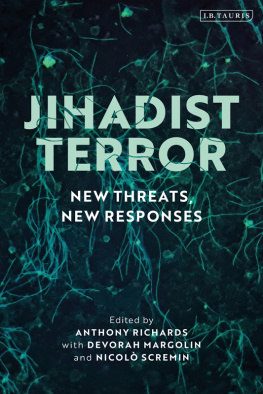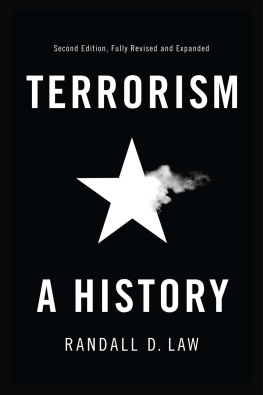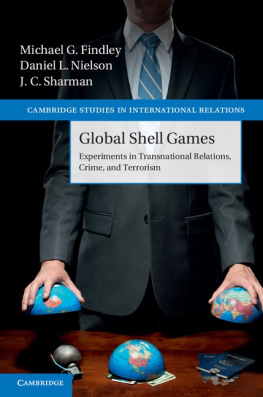Transnational Organized Crime and Jihadist Terrorism
This book describes and analyzes the convergence of transnational organized crime and jihadist terrorism that has taken place within Russian-speaking social networks in Western Europe.
Studies have shown that while under certain circumstances links between criminal organizations and terrorist groups appear, these are usually opportunistic and temporary in nature. Only rarely do they develop into something deeper and transformative, a convergence between crime and terrorism. This book reveals that Russian-speaking transnational organized crime and jihadist terrorism pose a serious threat to security and constitute a major challenge for law enforcement. Through their links with transnational organized crime, Russian-speaking jihadist networks from the Caucasus and Central Asia have easier access to weaponry, commercial explosives, and forged IDs than many other jihadist networks. Being in effect an integral component of transnational organized crime, the Russian-speaking jihadists can be assessed as potentially more capable than many other jihadists. The book assesses the effects of terrorism and organized crime on Russian-speaking diasporas in Western Europe and examines the implications for counterterrorism as well as policing on how to counteract the illegal activities of these networks. Drawing on Swedish court cases the work shows that an additional, and sometimes more effective way, to fight terrorism is by focusing on the non-terrorist types of crime perpetrated by terrorists.
This book will be of much interest to students of terrorism and counterterrorism, political violence, criminology, security studies and IR in general.
Michael Fredholm is Professor and Head of Research and Development at IRI, Stockholm, Sweden. He is the editor of Understanding Lone Actor Terrorism: Past Experience, Future Outlook, and Response Strategies (Routledge, 2016).
Contemporary Terrorism Studies
Radicalization in Western Europe
Integration, Public Discourse and Loss of Identity among Muslim Communities
Carolin Goerzig and Khaled Al-Hashimi
Putting Terrorism in Context
Lessons from the Global Terrorism Database
Gary LaFree, Laura Dugan and Erin Miller
Al Qaedas Global Crisis
The Islamic State, Takfir, and the Genocide of Muslims
V. G. Julie Rajan
Social Networks, Terrorism and Counter-Terrorism
Radical and Connected
Edited by Martin Bouchard
Understanding Lone Actor Terrorism
Past Experience, Future Outlook, and Response Strategies
Edited by Michael Fredholm
Hamas, Popular Support and War in the Middle East
Insurgency in the Holy Land
Richard Davis
Social Movement De-Radicalisation and the Decline of Terrorism
The Morphogenesis of the Irish Republican Movement
Gordon Clubb
Understanding Deradicalization
Methods, Tools and Programs for Countering Violent Extremism
Daniel Koehler
Assessing the War on Terror
Western and Middle Eastern Perspectives
Edited by Charles Webel and Mark Tomass
Understanding Boko Haram
Terrorism and Insurgency in Africa
Edited by James J. Hentz and Hussein Solomon
Reintegrating Jihadist Extremist Detainees
Helping Extremist Offenders Back into Society
Daan Weggemans and Beatrice de Graaf
Transnational Organized Crime and Jihadist Terrorism
Russian-Speaking Networks in Western Europe
Michael Fredholm
First published 2018
by Routledge
2 Park Square, Milton Park, Abingdon, Oxon OX14 4RN
and by Routledge
711 Third Avenue, New York, NY 10017
Routledge is an imprint of the Taylor & Francis Group, an informa business
2018 Michael Fredholm
The right of Michael Fredholm to be identified as author of this work has been asserted by him in accordance with sections 77 and 78 of the Copyright, Designs and Patents Act 1988.
All rights reserved. No part of this book may be reprinted or reproduced or utilized in any form or by any electronic, mechanical, or other means, now known or hereafter invented, including photocopying and recording, or in any information storage or retrieval system, without permission in writing from the publishers.
Trademark notice: Product or corporate names may be trademarks or registered trademarks, and are used only for identification and explanation without intent to infringe.
British Library Cataloguing in Publication Data
A catalogue record for this book is available from the British Library
Library of Congress Cataloging in Publication Data
A catalog record for this book has been requested
ISBN: 978-1-138-74994-8 (hbk)
ISBN: 978-1-315-17715-1 (ebk)
Typeset in Times New Roman
by Wearset Ltd, Boldon, Tyne and Wear
Preface
A number of studies have shown that while under certain circumstances links between criminal organizations and terrorist groups appear, these are usually opportunistic and temporary in nature. Only rarely do they develop into something deeper and transformative, a convergence between crime and terrorism. When this takes place, the convergence typically occurs in remote areas beyond the effective control of the state, such as in contested parts of Central Asia and the Caucasus, the Federally Administered Tribal Areas (FATA) in Pakistan, or the tri-border region of Argentina, Brazil and Paraguay. This, at least, is the conventional wisdom.
However, a convergence of transnational organized crime and terrorism can also be found within Western society, in effect as a response to circumstances particular to social relations within a diaspora, within those fluid and dynamic structures that form part of broader social networks. Such links characterize the convergence of Russian-speaking transnational organized crime and jihadist terrorism within the broader Caucasian and Central Asian diaspora in Western Europe. Already before the 1991 dissolution of the Soviet Union, Caucasian and Central Asian crime groups had assumed a disproportionate role within Russian organized crime. In the early 1990s, Chechen organized crime groups played a critical role in the attempt to form an independent Chechen state. Both separatists and crime groups benefited from the relationship. They did not necessarily have to agree on methods, goals, or desired end-state, since it was sufficient that their relationship was mutually beneficial. Besides, many grew to espouse radical Islam, including jihadism. However, as Russia resumed control over Chechnya, large numbers of separatists, jihadists, and criminals took refuge in Western Europe. There too, convergence took place between criminal and terrorist activities, but for other reasons, having more to do with diaspora needs and personal ambitions than the wish for an independent state.
This book aims to describe and analyze the convergence of transnational organized crime and jihadist terrorism that took place within Russian-speaking social networks in Western Europe. Taken as a model for the convergence of transnational organized crime and terrorism, it has implications for other diaspora-based social networks in this period of large-scale migration. Yet the phenomenon is also important in its own right, since Russian-speaking transnational organized crime and jihadist terrorism pose a serious threat to security and constitute a major challenge for law enforcement in the afflicted countries. Through their links with transnational organized crime, Russian-speaking jihadist networks have easier access to weaponry, commercial explosives, and forged IDs than many other jihadist networks. Being in effect an integral component of transnational organized crime, the Russian-speaking jihadists can be assessed as potentially more capable than many other jihadists. This brings implications for counterterrorism as well as policing on how to counteract the illegal activities of these networks.

